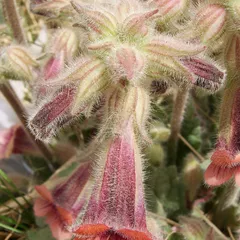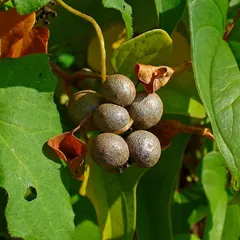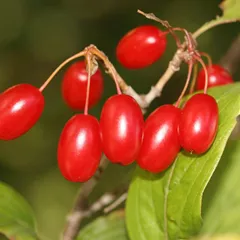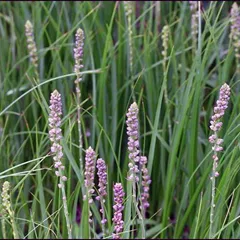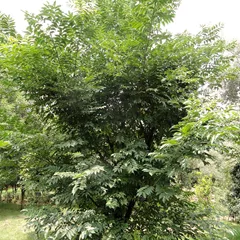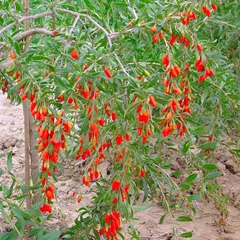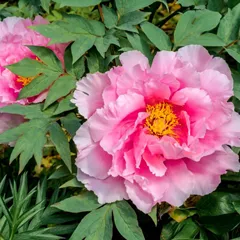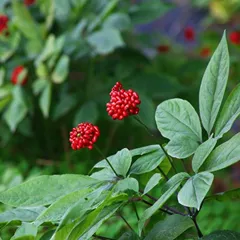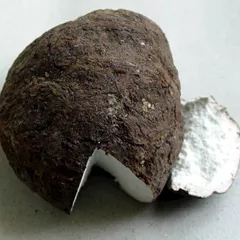Qing Jing San
Qing Jing San
Chinese: 清经散
Pinyin: Qīng Jīng Sàn
Other names: Clearing the Menses Powder
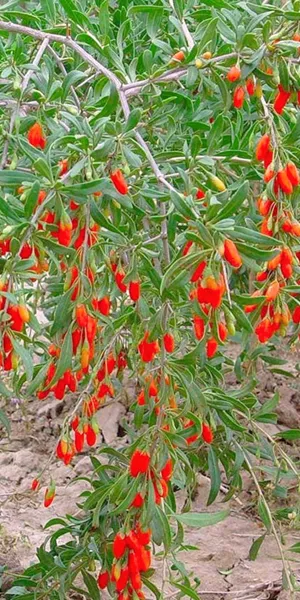
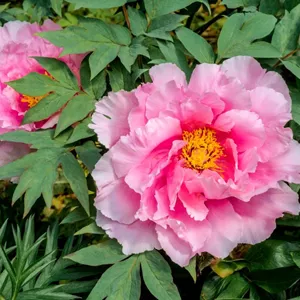
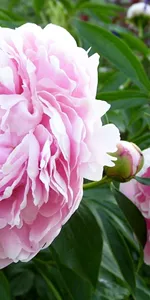
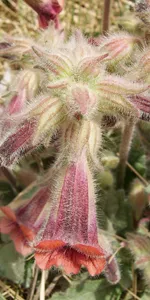
Qing Jing San
Qing Jing San
Chinese: 清经散
Pinyin: Qīng Jīng Sàn
Other names: Clearing the Menses Powder
Number of ingredients: 7 herbs
Formula category: Formulas that clear Blood-Heat
Conditions for which it may be prescribed: Early menstruationAbnormal uterine bleeding
- Clears Blood-Heat
- Stops bleeding
Source date: 1826 AD
Source book: Fu Qing Zhu's Gynecology
The information provided here is not a replacement for a doctor. You shouldn't use it for the purpose of self-diagnosing or self-medicating but rather so you can have a more informed discussion with a professional TCM practitioner.
Qing Jing San is a 7-ingredient Chinese Medicine formula with Goji Tree Root Bark (Di Gu Pi) as a principal ingredient.
Invented in 1826 AD, it belongs to the category of formulas that clear Blood-Heat. Its main actions are: 1) clears Blood-Heat and 2) stops bleeding.
In Chinese Medicine health conditions are thought to arise due to "disharmonies" in the body as a system. These disharmonies are called "patterns" and the very purpose of herbal formulas is to fight them in order to restore the body's harmony.
In this case Qing Jing San is used by TCM practitioners to fight patterns like Heat in the Blood. From a Western Medicine standpoint, such patterns can give rise to a range of conditions such as early menstruation or abnormal uterine bleeding for instance.
On this page, after a detailed description of each of the seven ingredients in Qing Jing San, we review the patterns and conditions that Qing Jing San helps treat.
The seven ingredients in Qing Jing San
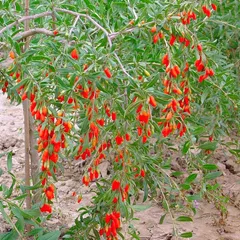
Di Gu Pi is a king ingredient in Qing Jing San. Like the name indicates, it means it has more power than other ingredients in the formula.
1. Goji Tree Root Bark (Di Gu Pi)
Part used: Dried root bark
Nature: Cold
Taste(s): Sweet
Meridian affinity: KidneyLiverLung
Category: Herbs that cool the Blood
In general Di Gu Pi's main actions are as follows: "Clears Yin Deficient Heat;. Clears Lung Heat and stops cough. Cools the Blood when there is reckless movement of Blood. Drains Fire when Kidney Water is unable to control Fire."
In the context of Qing Jing San, it is used because it clears Heat .
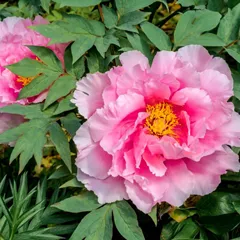
2. Mudan Peony Bark (Mu Dan Pi)
Part used: Root barks
Nature: Cool
Meridian affinity: HeartKidneyLiver
Category: Herbs that cool the Blood
In general Mu Dan Pi's main actions are as follows: "Cools the Blood, activates Blood circulation and resolves Blood stasis."
In the context of Qing Jing San, it is used because it cools Blood and stops bleeding.
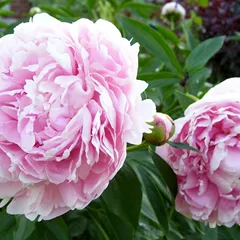
3. White Peony Roots (Bai Shao)
Part used: Dried root
Nature: Neutral
Meridian affinity: LiverSpleen
Category: Tonic herbs for Blood Deficiency
In general Bai Shao's main actions are as follows: "Tonifies the Blood and preserves the Yin. Nourishes the Liver and assists in the smooth flow of Qi. Regulates the meridians and eases the pain."
In the context of Qing Jing San, it is used because it calms Blood to stops bleeding.

4. Prepared Rehmannia (Shu Di huang)
Part used: Prepared dried root tuber
Nature: Warm
Taste(s): Sweet
Meridian affinity: KidneyLiver
Category: Tonic herbs for Blood Deficiency
In general Shu Di huang's main actions are as follows: "Tonifies the Blood. Tonifies the Yin of the Kidneys."
In the context of Qing Jing San, it is used because it nourishes Blood.
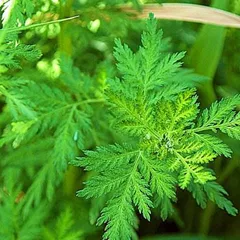
5. Sweet Wormwood Herbs (Qing Hao)
Part used: Dried aerial parts
Nature: Cold
Taste(s): Bitter
Meridian affinity: GallbladderKidneyLiver
Category: Herbs that clear Heat and purge Fire and/or clear Summer HeatHerbs that clear Yin Deficiency Heat
In general Qing Hao's main actions are as follows: "Treats malaria. Treats summer Heat and clears symptoms of deficient Heat. Clears Blood Heat and stops bleeding."
In the context of Qing Jing San, it is used because it clears Heat.
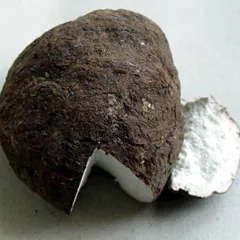
6. Poria-Cocos Mushrooms (Fu Ling)
Part used: Dried sclerotium
Nature: Neutral
Taste(s): Sweet
Meridian affinity: HeartKidneyLungSpleen
Category: Herbs that drain Dampness
In general Fu Ling's main actions are as follows: "Encourages urination and drains Dampness. Tonic to the Spleen/Stomach. Assists the Heart and calms the Spirit."
In the context of Qing Jing San, it is used because it drains Dampness.
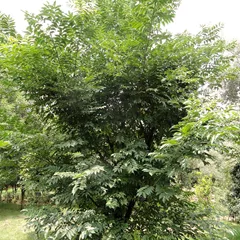
7. Phellodendron Bark (Huang Bo)
Part used: Dried bark
Nature: Cold
Taste(s): Bitter
Meridian affinity: BladderKidneyLarge intestine
Category: Herbs that clear Heat and dry Dampness
In general Huang Bo's main actions are as follows: "Expels Damp-Heat in the Lower Burner. Clears Kidney Yin Deficient Heat. Applied externally or toxic Fire, especially associated with Dampness."
In the context of Qing Jing San, it is used because it drains Dampness.
Qing Jing San is used to treat Heat in the Blood
It's important to remember that herbal formulas are meant to treat patterns, not "diseases" as understood in Western Medicine. According to Chinese Medicine patterns, which are disruptions to the body as a system, are the underlying root cause for diseases and conditions.
As such Qing Jing San is mostly used to treat the pattern "Heat in the Blood" which we describe below.
But before we delve into Heat in the Blood here is an overview of the Western conditions it is commonly associated with:
Early menstruation Abnormal uterine bleeding
Again it wouldn't be correct to say "Qing Jing San treats early menstruation" for instance. Rather, Qing Jing San is used to treat Heat in the Blood, which is sometimes the root cause behind early menstruation.
Now let's look at Heat in the Blood, a pattern that TCM practitioners commonly treat with Qing Jing San.

Blood (Xue) is one of Chinese Medicine's vital subtances. Learn more about Blood in Chinese Medicine
Heat in the Blood
Pulse type(s): Rapid (Shu)
Tongue color: Red
Symptoms: Fever Thirst Eczema Anxiety Itching Insomnia Delirium Red face Tinnitus Dry mouth Dizziness Dark Urine Dry stools Dry throat Bloody nose Malar flush Bloody urine Irritability Restlessness Night sweats Constipation Bloody sputum Bloody stools Heavy periods Restlnessness Early periods Cough of blood Abdominal pain Scanty periods Feeling of heat Delirious speech Vomiting of blood Red skin eruptions Dark colored blood Pale color periods Thick menstrual blood Black and tarry stools Thin and watery periods Bitter taste in the mouth Frequent bleeding episodes Trickling blood after period Dark clots in menstrual blood Pre-menstrual breast distention Abdominal distention and fullness Flooding suddenly before schedule Thirst with an inability to swallow Frequent bleeding episodes in stools urine or vomit
Qing Jing San is sometimes prescribed by TCM practitioners to treat Heat in the Blood. This pattern leads to symptoms such as feeling of heat, red skin eruptions, thirst and frequent bleeding episodes. Patients with Heat in the Blood typically exhibit rapid (Shu) pulses as well as Red tongue.
The most common cause of Heat in the Blood is a Heat Pernicious Influence that has invaded the body and agitates the Blood. This results in accelerated blood flow which manifests itself in a rapid pulse, expanded and damaged Blood vessels and often heavy bleeding. The Blood will be fresh red or... read more about Heat in the Blood
Formulas similar to Qing Jing San
Gui Shao Di Huang Tang is 50% similar to Qing Jing San
Zhi Bo Di Huang Wan is 50% similar to Qing Jing San
Liu Wei Di Huang Wan is 43% similar to Qing Jing San
Di Gu Pi Yin is 43% similar to Qing Jing San
Ren Shen Zi Xie Tang is 43% similar to Qing Jing San
Ba Wei Di Huang Wan is 38% similar to Qing Jing San

